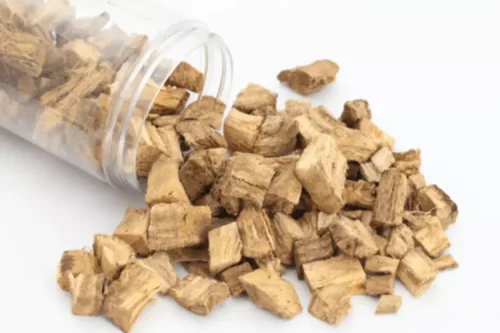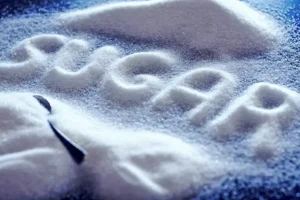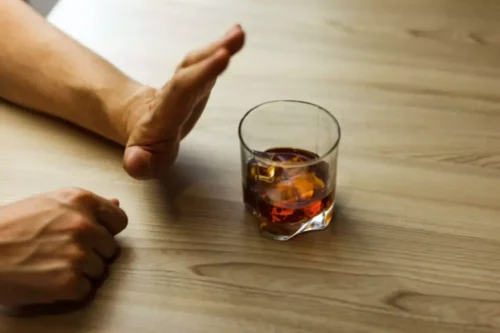
When people in America notice they’ve developed issues falling asleep, their first reaction is often to have a drink. This may help many fall asleep on occasion; however, the use of alcohol, even a single serving, will make it more difficult for someone to reach deep sleep, also known as REM sleep. Without deep sleep, our mind and body are unable to do what’s necessary to prepare for the next day. The good news is that these sleep disruptions are temporary, and any insomnia you experience will likely resolve as you persevere through recovery.
2 Sex effects in the impact of alcohol and alcoholism on sleep
The model originally developed by McCarleyand Hobson (1975) proposed a set of reciprocal interactions between the two groupsof neurons whereby REM-on neurons are influenced by a self-excitatory loop but also have anexcitatory link to REM-off neurons. Once a threshold level of activation is reached in theREM-off cells, they become dominant. These https://ecosoberhouse.com/ have an inhibitory action on REM-on cells butalso a self-inhibitory feedback loop that progressively decreases their activity.Eventually, activity drops below a threshold point and REM-on cells regain dominance. Recentwork has identified an important role for GABAergic interneurons that act to facilitate theREM-off process (McCarley 2011).
Circadian Rhythm Fasting
More than 70% of those with alcohol use disorder (AUD) also experience alcohol-induced sleep disorders, such as insomnia, according to scientists in a 2020 review. Regular drinking has also been linked to shorter periods of rapid eye movement (REM) sleep, a disrupted circadian rhythm, and snoring. Insomnia is a disorder that prevents someone from achieving a restful night’s sleep. This could mean that they aren’t reaching a deep level of sleep, are waking several times through the night, or can’t fall asleep to begin with.
Alcohol Dependence and its Relationship with Insomnia and Other Sleep Disorders

While alcohol may initially make you feel drowsy, it can interfere with your sleep cycle, cause frequent night awakenings, and lead to poor sleep quality. Chronic or heavy alcohol consumption can worsen these effects and contribute to long-term health problems. Yules, Freedman, and Chandler (1966)studied three young non-alcohol dependent, men over 5 nights of drinking, with 1g/Kgethanol administered 15 minutes before bedtime. Yules,Lippman and Freedman (1967) studied four alcohol insomnia young men over three or five nights ofdrinking with 1 g/Kg ethanol administered 4 hours before bedtime. In one study, subjects with AD in acute withdrawal demonstrated a higher intensity of respiratory events in their sleep (12.6 ± 12.3 events/hour), as compared to healthy controls (3.6 ± 3.4 events/hour) (Le Bon et al., 1997). In another study, a higher prevalence rate of SDB was seen in treatment-seeking patients with AD (41%), as compared to control subjects (23%).

How Alcohol Affects People With Insomnia
This condition may be secondary to a hyperexcitable state of the central nervous system (Begleiter and Porjesz, 1979) and has been called protracted abstinence, protracted withdrawal phase, or late withdrawal symptoms (Heilig et al., 2010). Its main features include, mood disturbance, alcohol craving and sleep related disturbances, and they may persist for about 5 weeks (Alling et al., 1982). In addition to the electrophysiologic mechanisms of sleep, Borbely and colleagues postulated a two-process model of sleep regulation (Borbely, 1982).
- Drinking heavily over time can also disrupt the chemical messengers in the brain, which can affect sleep.
- Avoid anything with sugar or caffeine that could further disrupt your sleep.
- Alcohol can cause insomnia — or sleep problems that look like insomnia — in a few different ways.
- However, thosewith delirium tremens did have altered rhythms (Mukai et al.1998; Fonzi et al. 1994).
- The P2, N350 and P900 components measuredat Cz showed no group differences for amplitude or latency.
(2002) reported a trend for elevated beta activity in alcoholics across theentire night at baseline that became a significant difference during a recovery nightfollowing a night of partial sleep deprivation. (2009b) did not see any differences between alcoholics and controls in highfrequency EEG activity during sleep. Because these analyses are performed on stable sleepepochs, results suggest that once sleep is attained, it is not necessarily characterizedby elevated fast frequency activity. By contrast, primary insomniacs have greater betapower during NREM sleep than normal sleepers, thought to reflect higher levels of corticalarousal (Riemann et al. 2010). Topographicdifferences in EEG spectral power during sleep evaluated in alcoholics compared withcontrols revealed that slow frequency activity was maximal over frontal scalp regions inboth alcoholics and control subjects (Colrain, Turlington,and Baker 2009b). Differences in slow frequency between alcoholics andcontrols were also more marked over the frontal scalp with alcoholics showing lower deltaEEG power (Figure 3).
Causes and risk factors

Sleep disturbances disrupt hormonal balance, which affects body temperature regulation. Alcohol is a diuretic, meaning it increases urine production, leading to more frequent bathroom trips throughout the night and fragmented sleep. The diuretic effects of alcohol increase as your blood alcohol concentration rises, meaning the more you drink, the more you’ll wake up at night to pee. Alcohol’s diuretic effects can also contribute to dehydration, as your body expels fluids faster than you replace them.
- Treating these conditions may be necessary as some individuals experience insomnia due to other health issues.
- Submit your number and receive a free call today from a treatment provider.
- Symptoms of co-occurring disorders may heighten when you stop drinking alcohol.
- Conversely, the “morning” type individual (greater morningness) prefers an earlier bedtime and an earlier rise time.
- The most effective time of day for the body to metabolize alcohol, according to research?
- In addition to the electrophysiologic mechanisms of sleep, Borbely and colleagues postulated a two-process model of sleep regulation (Borbely, 1982).
- Here’s more on those key tips to avoiding alcohol insomnia for the casual drinker or those without alcohol abuse problems.
- While alcoholdoes not lead to presynaptic GABA release in the thalamus or cortex the way it does insome other brain regions (Kelm, Criswell, and Breese2011), it does enhance the function of GABAA receptors.
Although there’s no evidence that alcohol can cause narcolepsy (sleepwalking), it does disrupt REM sleep, which may make the onset of sleepwalking more likely. Even though a glass or two may help you initially drift off faster, it probably won’t benefit your sleep quality in the long run. By Lindsay CurtisCurtis is a writer with over 20 years of experience focused on mental health, sexual health, cancer care, and spinal health. RISE can make this second nature by telling you when to do 20+ sleep hygiene habits at the time that’ll make them most effective for you.
If you have an alcohol abuse problem, you may take longer to fall asleep and get less REM and sleep overall, both when drinking and when in withdrawal. You may also experience insomnia and sleep disturbances when drinking and years after you’ve quit. Abnormalities in the timing of REM sleep wouldappear to last longer into the abstinence period. The role of circadian misalignment indisturbed brain reward function, and its role in the development of alcohol use disorders isthe subject of a recent review by Hasler and Clark (2013).